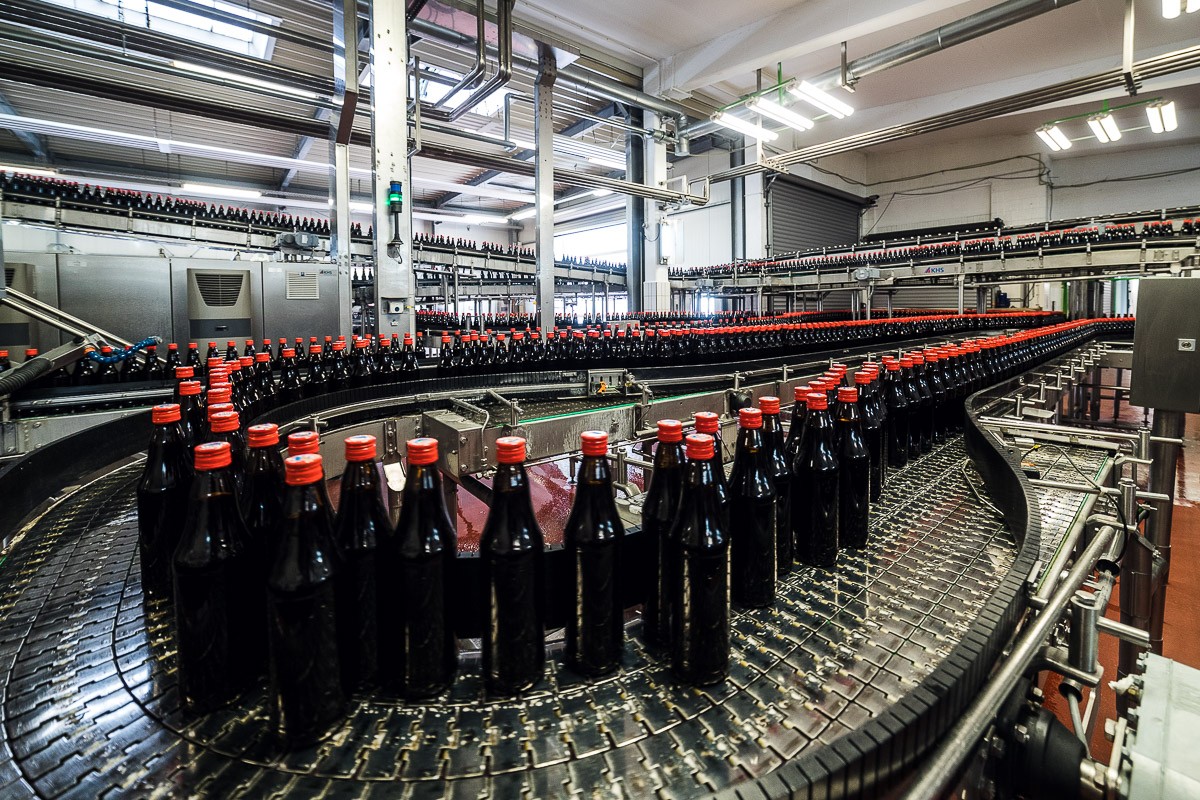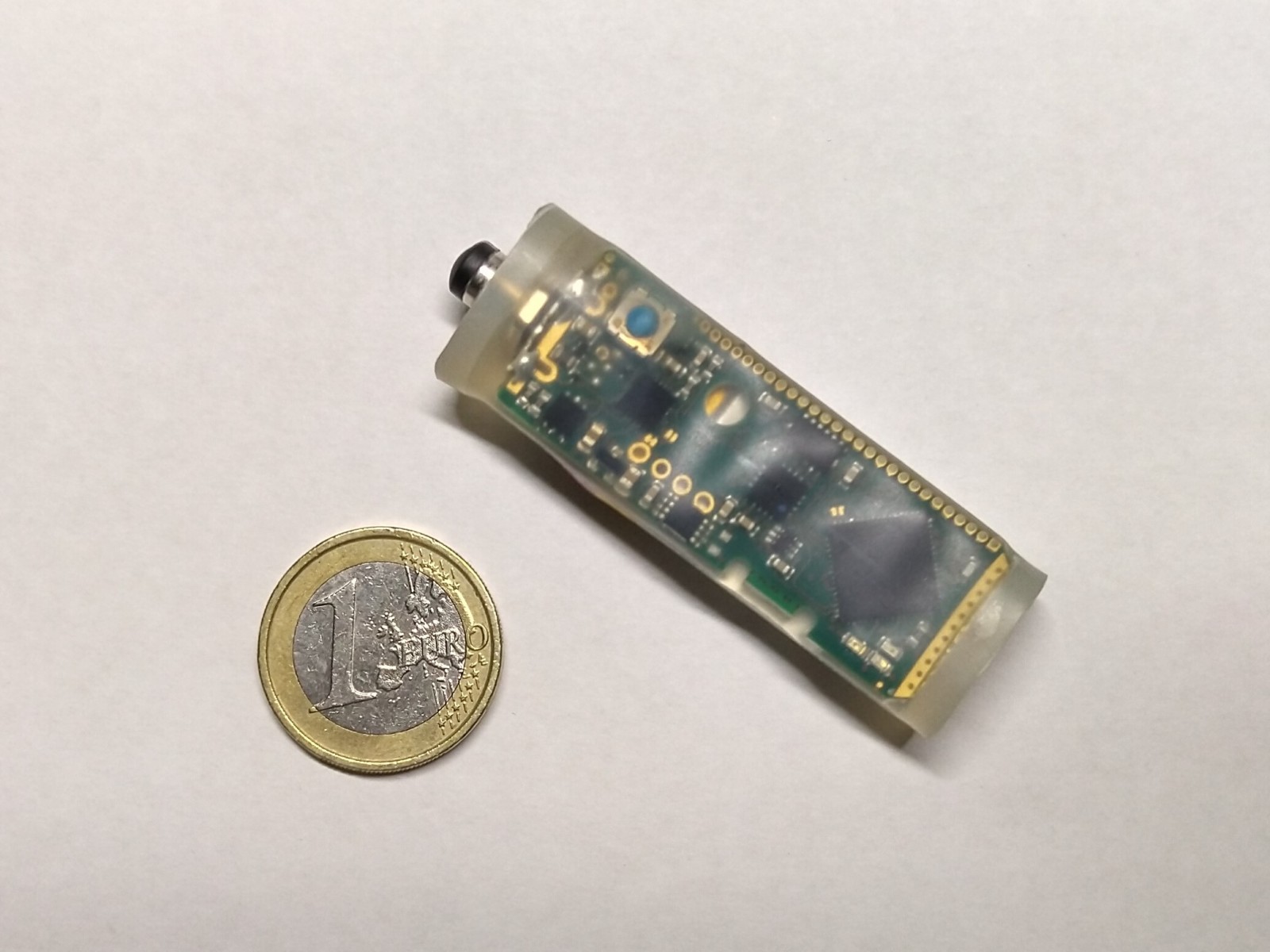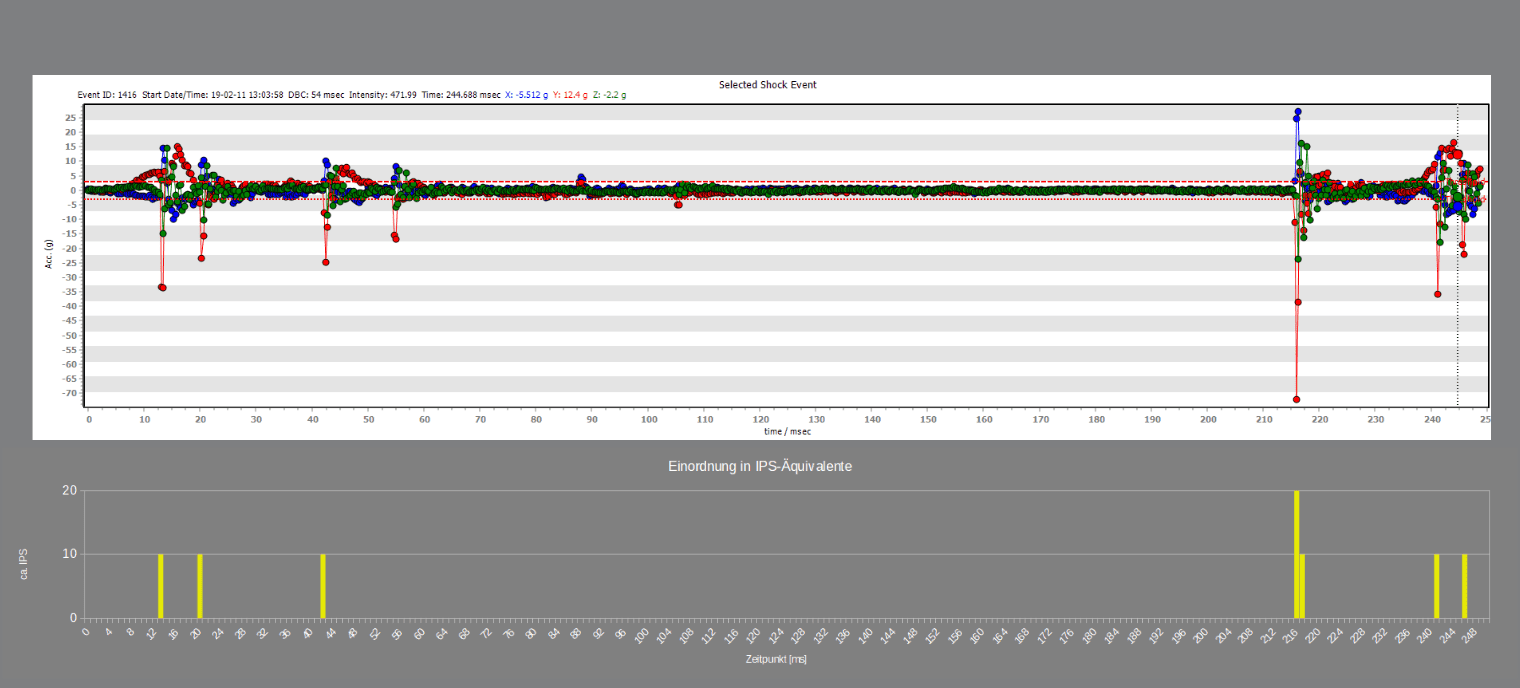Case study IGR Institut für Glas- und Rohstofftechnologie GmbH
Author: Dirk Diederich, Managing Director IGR Institut für Glas- und Rohstofftechnologie GmbH, Göttingen
Newly developed mini data loggers allow glassworks and bottling companies to carry out line inspections in the original container in direct contact with the product. This enables an unrestricted run through the entire production line.
In bottling plants for beverages, food or pharmaceutical products, damage to the container or even glass breakage can occur during the filling process. Damage can also be caused to the glass during production in the glassworks or during transportation to the bottling company, the exact point of origin (time of origin) of which is not known.
Mini data loggers quickly and precisely record stresses in the filling product
The new mini data loggers developed by IGR - Institut für Glas- und Rohstofftechnologie GmbH in cooperation with MSR use high-resolution sensors to record accelerations in the form of shocks, impacts and vibrations in the filled original container. The recordings provide information about the (external) influences to which the jars and bottles are exposed during filling, packaging, transportation and storage. The data obtained in this way is used by the glass and bottling industry both to identify damage and to optimize processes.
In practice, some bottlers are already using data loggers in the form of bottle dummies that run through sections of the filling line and record data for acceleration purposes.
In addition to the cost-intensive production of one dummy for each glass shape, the disadvantages of this method include the different behavior of original glass bottles compared to acrylic dummy bottles. While the behavior of the glass bottle changes on the filling line when changing from the unfilled to the filled state, it always remains the same for the dummy.
However, it is very important to differentiate between these two states, as the measured acceleration values change significantly depending on whether the bottle or container is empty or full. Furthermore, when collecting data using a dummy, it is not possible to measure the entire distance, as the dummy has to be removed manually before the rinser and filler, for example, and then reinserted. The measurement results from this section are therefore missing.
Flexible silicone housing allows measurements in narrow and wide-necked glasses
To overcome this problem, IGR - Institut für Glas- und Rohstofftechnologie GmbH, in cooperation with MSR, has developed individually configurable data loggers that make the use of dummies superfluous.
The "MSR175B4", "MSR165B4" and "MSR160B4" data loggers in silicone tubing are watertight, insensitive to temperature and pressure and can be used variably in original narrow-neck or wide-neck jars. They are designed for direct contact with filling goods and can run through the entire production or filling line under real conditions and record the required data.
Record acceleration up to 6400 times per second
Below are some technical data of the three data logger variants currently available:
The "MSR175B4" has two internal 3-axis acceleration sensors with measuring ranges of ± 15 g and ± 200 g and records shocks at a measuring rate of up to 6400 Hz. The measuring frequency can be set manually. The memory capacity of over 2 million measured values is sufficient to record at least 1000 shocks over a measurement period of up to eight weeks. The "MSR175B4" also stores temperature curves from -20 to +65 °C. A brief rise in temperature during pasteurization or use in the dishwasher does not restrict the function of the data logger. The device is optionally available with an internal temperature, humidity (0 to 100 % rel. humidity), pressure (0 to 14 bar) and light sensor (0 to 65000 lx), currently with a measuring rate of 10 minutes.
The "MSR165B4" has an internal 3-axis acceleration sensor with a measuring range of ± 200 g (optional ±15 g) and records shocks at a measuring rate of up to 1600 Hz. The memory capacity of over 2 million measured values is sufficient to record at least 10,000 shocks with a recording duration of up to six months.
The "MSR160B4" data logger is equipped with a 30 bar pressure sensor with a maximum measuring rate of 1000 Hz. This can be used, for example, to determine pressure differences that occur in filled bottles due to impacts.
All three MSR data loggers in silicone tubing comply with the EU RoHS/WEEE directive.
The current outer diameter of the data loggers is 19.5 mm; an optimization of the outer diameter to approx. 16.5 mm, which allows use in all common mineral water or beer bottles, for example, is currently under development.
Application example: Data logger for line inspection in a beverage bottling plant
If the data logger is to be used for line inspection in a beverage bottling plant, an original bottle is prepared in advance at the IGR or directly on site at the plant. The respective data logger is inserted through the (bottle) opening and then fixed in place, i.e. its position remains unchanged throughout the entire measurement. After the data logger has passed through the line several times and any visually detected weak points have been additionally tested, it is evaluated using MSR ShockViewer software and then classified in IPS (inches per second).
In their function as shock loggers, the "MSR175B4" and the "MSR165B4" record accelerations. Accelerations are measured in m/s² or in g. The classification of these values into the IPS (inches per second) unit commonly used in the glass industry is carried out by means of a corresponding calibration at the IGR or at the user's premises with the original glass and original filling material using a pendulum impact tester. By fixing the data logger in the bottle, it is even possible to subsequently determine the direction (horizontal or vertical) in which the load was applied.
Alternatively, a pre-evaluation is possible directly on site and thus an immediate verification of desired line parts.
It is also possible to leave the logger in the bottle for several weeks after completion of the filling process in order to record the transportation to the warehouse and any movements there. The bottle prepared with the data logger is marked on the outside, as is the packaging unit in which it is located, so that it can be found again. On the one hand, this guarantees visual traceability during data collection and, on the other, the marking prevents the prepared bottles from being accidentally placed on the market.
In addition, MSR is currently developing a new process that enables the data loggers to be retrieved using radio technology. This means that contact with the logger can be maintained even if it remains in the bottle for a longer period of time during packaging and transportation, and the prepared bottle can be accessed at any time.
Calibration, preparation, measurement and data evaluation by IGR
It is recommended that the initial use of the "MSR175B4", "MSR165B4" and "MSR160B4" data loggers in silicone tubing be carried out and accompanied by an IGR employee so that visual or acoustic anomalies or faults in the system during the run can be compared with the measurements of the data logger and recorded events can be verified immediately. The evaluation of the read-out measurement data by the IGR and its preparation in a separate test report is also particularly useful when using the data logger for the first time.
At present, data evaluation takes place afterwards and can be carried out directly on site; real-time evaluation is currently not possible due to the volume of data and the required classification in IPS. In addition to calibration, preparation, measurement and data evaluation, the IGR offers training courses on handling the data loggers and data evaluation using the MSR software.
Data loggers are helpful in identifying potential cost savings
However, the use of data loggers as a control instrument is not only interesting for bottling companies. For glassworks, for example, data logger recordings can provide important clues for optimizing shapes and weights, particularly with regard to cost-saving potential.
The use of data loggers also makes sense in the pharmaceutical industry, particularly when using amber glass bottles, which guarantee a high level of opacity. Here, light and temperature measurements can be used to ensure or prove that the contents have not been exposed to sunlight during packaging, storage and shipping.
In principle, the "MSR175B4", "MSR165B4" and "MSR160B4" data loggers can be configured to suit the specific conditions at the place of use, so that they can be used worldwide for inspecting lines in glassworks and by bottling companies and the like that fill and transport narrow-neck and wide-neck glass.
The "MSR175 in silicone tubing" is sold worldwide exclusively by IGR - Institut für Glas- und Rohstofftechnologie GmbH.




